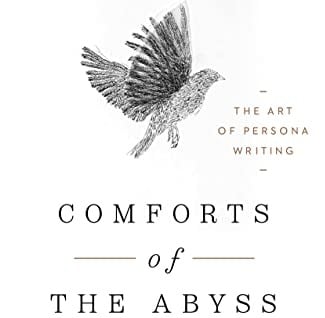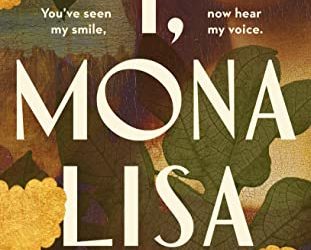"Schultz, founder and director of The Writers Studio, chronicles the challenges he faced as a poet, fiction writer, and teacher that led him to see the aesthetic and psychological value of creating a writing persona. He has long confronted a pervasive inner critic...
Dyslexia and Farming: Matt Baker [Premium]
“If somebody asked me if I could live my life again without dyslexia, I would say no, because you recognise things and you do things differently to the way everybody else does, and that gets you to the front of the queue. You see things which are very obvious to you. I’m very practical and visual – that’s what I’m drawn to. And you find ways around challenges and it gives you a different perspective on life.” — Matt Baker of Our Farm in the Dales In the United Kingdom, research has suggested that one in ten people are dyslexic, but besides being over-represented in schools of engineering and art design, dyslexia is also found more commonly in agricultural students (one in five). […]
Audio Study for Drivers Tests
If it's Spring, then it must be time for driver training! Many Departments of Motor Vehicles are poorly equipped to meet the needs of the neurodiverse community and it may not be obvious how to access an audio version of the drivers manual (our state...
What Should We Do This Summer?
Summer is usually a great time for dyslexic students – out of the daily grind of school. Hopefully the pandemic truly is easing and more activities are returning to normal. TAKE A BREAK Students have been working hard and under stress these past months, so make sure they have a chance to really have some time for rest and recovery. How long that break might be depends on how tired or stressed they may be as the school year comes to a close. Having unscheduled time can do some good things – encourage some students to finally pick up a book of their choosing and begin to read, start a new hobby or return to one, or deepen relationships with family and friends. [gspeech […]
PTSD and Dyslexia
“This study identified that emotional trauma took place in all participants, and this resulted in many having Post-Traumatic Stress Disorder manifestations as a result of returning to school for their own children. Participants still noted anger and resentment as adults towards their childhood teachers…” — Neil Alexander-Passe In Neil’s study of PTSD or post-traumatic stress disorder in dyslexic adults in the United Kingdom, he found that all experienced emotional trauma in their time in the public school system and over half (64%) experienced PTSD or school avoidance symptoms when re-entering schools as parents, resulting in anxiety with many stating that they felt powerless as a child. PTSD symptoms occurred in the same frequency whether or not adults had achieved advanced degrees.
From […]Henry Winkler: Find the Very Best for You
“There is an emotional component to the learning challenged,” says Winkler, whose parents called him “dumb dog” for his failures. “You don’t have a sense of self because you’re not keeping up with everybody… you feel terrible about yourself.” — Henry Winkler Henry Winkler seems to be everywhere. He seems to be having the time of his life and giving generously of his life lessons and hopes for the future. He’s currently in the 3rd season of HBO’s Barry, in an Emmy Award-winning role of a drama teacher, but he also finds every opportunity to share his life lessons about dyslexia and finding the very best for yourself.
In a lovely interview in the New York Times, Henry shared how he fell […]Pausing while Writing [Premium]
There are many reasons why students may pause while writing, but more if students are also dyslexic. Those who remember their thoughts and experiences as nonverbal sensations will need extra steps to put their knowledge and understanding into words. Dysgraphic students will have difficulty writing and those with small working memories, may overload with all the work required for getting ideas in their head down on the page. A BIRD’S EYE VIEW OF THE WRITING PROCESS When Brock and I were testing students, our battery for comprehensive testing included the timed writing of the lower case alphabet, sentence and symbol copy (the latter from the Coding subtests of the WISC), sentence combining, spelling test, descriptive writing of a picture, then 10 minute writing […]
Grit and Resilience [Premium]
“The worst problem any dyslexic has to face is not reading, writing, or even spelling, but a lack of understanding…” — The Reality of Dyslexia Grit is the ability to persevere in the face of setbacks, challenges, pain, and adversity. Resilience is similar, but different in the sense it describes an ability to “bounce back” from difficulties. Both, as it turns out, are important for the achievement of long-term goals and mental well-being. When students in dyslexia specialty schools were studied over the course of years, researchers found that grit and resilience scores increased over time in these schools – and that correlated with lower levels of anxiety and depression and improved academic performance. Want to assess your grit? Click here —> GRIT SCALE […]
Taming the Monkey Mind [Premium]
The idea of having a “monkey mind”, jumping around from one thought to another, dates back centuries. It’s a term that can be applied to restless poorly controlled thought. We are all susceptible to “monkey mind” when our minds are excited, stressed, worried, or tired, but for some, the monkey mind is a frequent state of mind and learning to control it and harness its powers is an important life task. Many dyslexic strengths – like curiosity, imagination, multi-perspective thinking, can also lead to maladaptive behaviors – like susceptibility to distraction or trouble persisting at particular goals – depending what is demanded at the time. What is becoming increasingly clear as scientist make progress in understanding how creative minds work – is that creativity at […]
Free Reading Resources for Teens [Premium]
It can be difficult to find free reading resources for middle and high school readers, but the non-profit SERP (Strategic Education Research Partnership) has a free engaging downloadable curriculum. The printed materials can also be purchased for classrooms. They launched STARI curriculum for Tier II to address “gaps in fluency, decoding, stamina, and comprehension.” It is definitely not sufficient to be used as a primary curriculum for dyslexic students, but each lesson module includes 3 levels of fluency passages and each lesson includes multimodal resources like pictures and audio interviews in addition to text. Check out all of the STARI resources HERE. Here are examples from a unit on disasters: One interesting part of this curriculum is the scaffolding of debate. For instance: […]
Novelist Natasha Solomons
“Books are my refuge, but I had to overcome dyslexia to write the stories I was bursting to tell.” — Natasha Solomons Natasha is a lifelong storyteller, but it took a lot of persistence and resilience to get those stories out. As a child, she listened to stories incessantly and her grandfather (also dyslexic) had the foresight to pass on his antique writing desk to her when she was just 10 years “to help her with ambition of becoming a writer.” It would be nearly 20 years later, but Natasha would write a novel at that writing desk that would earn a six-figure advance. Currently she is the author of 8 novels. She recently wrote a poignant article for The Guardian. An excerpt: “…stories […]
Study Hacking The Paper Driver’s License Test [Premium]
The Washington state driver’s license paper and pencil test can be a difficult one for dyslexic drivers. Having seen some of the sample questions, there’s a lot more number trivia compared to the California test I passed many years ago. Whether you don’t drink alcohol or smoke marijuana, you have to answer specific questions about how long it takes for the body to recover from a drink or smoking, but also answer detailed questions about how many days you have before reporting the sales of a vehicle to the Department of Licensing (5 days). With many similar questions and answers, the pass rate is 80% (what a nightmare!). ‘STICKY’ MEMORY CAN INTERFERE WITH ROTE STUDY FOR DRIVER’S TEST How to study for this […]


![Dyslexia and Farming: Matt Baker [Premium]](https://www.dyslexicadvantage.org/wp-content/uploads/2022/07/Matt-Baker-Dyslexic-Advantage.jpg)




![Pausing while Writing [Premium]](https://www.dyslexicadvantage.org/wp-content/uploads/2022/06/Pausing-while-writing-e1655685633950-400x250.png)
![Grit and Resilience [Premium]](https://www.dyslexicadvantage.org/wp-content/uploads/2022/06/pexels-justyna-krawczynska-8940197-400x250.jpg)
![Taming the Monkey Mind [Premium]](https://www.dyslexicadvantage.org/wp-content/uploads/2022/06/TAMING-400x250.jpg)
![Free Reading Resources for Teens [Premium]](https://www.dyslexicadvantage.org/wp-content/uploads/2022/05/Free-resources-for-teens-2-1-400x250.png)

![Study Hacking The Paper Driver’s License Test [Premium]](https://www.dyslexicadvantage.org/wp-content/uploads/2022/05/Study-Hacking-The-Paper-Drivers-License-Test-3-400x250.png)













